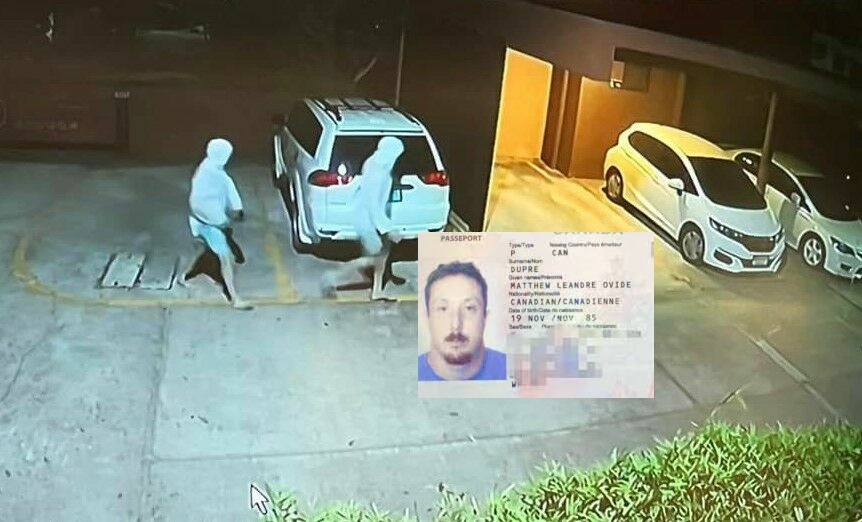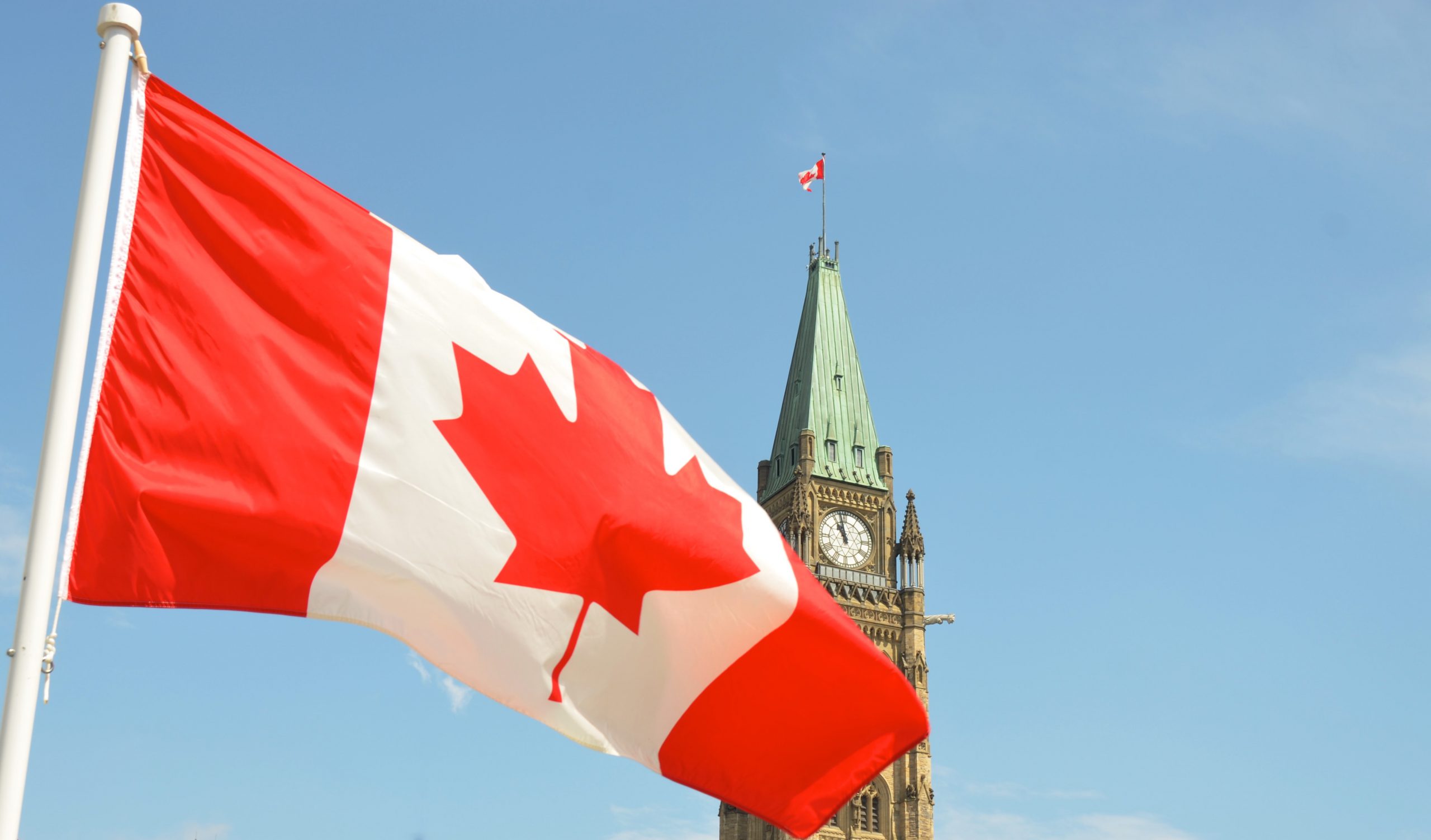News
Canada Extradites Former Soldier to Thailand to Face Murder Charge

An Alleged contract killer and former Canadian soldier Matthew Dupre has been discreetly deported from Canada to Thailand to face a murder charge for the shooting of Canadian criminal Jimi Sandhu in Phuket on February 4, 2022.
Last week, a special Airbus A340 flight carrying 10 members of the CSD’s Hanuman special weapons and tactics unit led by Pol Col Wichak Tarom, a deputy CSD commander, and 30 members of a Royal Thai Air Force special operations unit took off from Don Mueang airport for Vancouver, Canada, to bring Dupre back to Thailand.
The special flight, which included Dupre, returned to Thailand and landed at Don Mueang airport’s Wing 6 terminal at 11 p.m. on Sunday. The airport was closed temporarily due to strict security. Around 30 other Hanuman unit members and RTAF ground security met the flight.
The suspect was driven from the airport to CSD headquarters in a motorcade. His incarceration is now being monitored by the Central Investigation Bureau.
On February 4, 2022, at approximately 10.30 p.m., two foreign men shot Canadian gangster Jimi Singh (Slice) Sandhu dead in the parking area of his rented beachfront villa on Rawai beach in Phuket’s Muang district. A security camera captured the killers entering the villa.
Matthew Dupre was recognised as a suspect by Phuket and CSD police investigations.
On February 11, 2022, the Phuket Court issued a warrant for the arrest of Dupre and his accused accomplice on counts of premeditated murder, illegally possessing guns and ammunition, and carrying and using the guns in public.
According to a police investigation, the two suspects departed Thailand for Canada on February 6th.
On February 15, the Royal Thai Police international affairs section issued a letter to the Attorney General’s Office, along with the arrest warrants. Under the Extradition Act of 2008, the OAG was asked to cooperate with Canada for Dupre’s extradition.
The OAG then took the desired measure.
The Alberta Provincial Court in Canada issued an arrest warrant for Matthew Dupre at the request of the Alberta Attorney General’s Office.The Royal Canadian Mounted Police apprehended Dupre on February 20, 2022, at his house in Sylvan Lake, Alberta, near Red Deer.
The Court of Alberta in Edmonton later approved Dupre’s extradition to Thailand under Canada’s Extradition Act of 1999. Gene Lahrkamp, the second wanted suspect in the investigation, died in a tiny plane crash in Canada in May 2022.
The Extradition Act of Canada
The Extradition Act of Canada is a law that governs the process of extraditing individuals from Canada to foreign countries, as well as from foreign countries to Canada. The current version of the Extradition Act was enacted in 1999 and has undergone subsequent amendments.
The purpose of the Extradition Act is to establish a legal framework for extradition, which is the formal process by which one country requests the surrender of an individual located in another country for the purpose of facing criminal charges or serving a sentence.
Here are some key features of Canada’s Extradition Act:
1. Dual Criminality: Extradition can only be granted if the alleged conduct for which extradition is sought is considered a criminal offense in both Canada and the requesting country. This principle ensures that a person cannot be extradited for an act that is not considered a crime in Canada.
2. Extraditable Offenses: The Act provides a list of offenses that are considered extraditable, which includes a wide range of serious crimes such as murder, terrorism, drug trafficking, and fraud. The list can be expanded through bilateral treaties or multilateral agreements.
3. Extradition Process: The Act outlines the steps involved in the extradition process, including the submission of an extradition request, judicial review of the request, and the surrender of the individual if the extradition is granted.
4. Judicial Involvement: The Act emphasizes the role of the judiciary in the extradition process. Courts are responsible for reviewing the evidence presented by the requesting country to determine whether there is sufficient evidence to justify extradition. The courts also consider factors such as human rights and the possibility of the death penalty or cruel and unusual punishment.
5. Ministerial Discretion: The Minister of Justice in Canada has the final authority to make the decision on whether to surrender the person for extradition after the judicial process is complete. The Minister can refuse extradition in certain circumstances, such as if there are concerns about the person’s safety or if the request is politically motivated.
6. Appeal Process: The Act allows for an appeal process, where the person sought for extradition can challenge the decision through the Canadian courts, up to the Supreme Court of Canada in some cases.
It’s important to note that the Extradition Act is subject to international treaties and agreements, which may modify or supplement its provisions in specific cases. The Act provides a legal framework to ensure that extradition requests are handled in a fair and transparent manner while protecting the rights of the individuals involved.
News
Britain Must Be Ready for War in 3 Years, Warns New Army Chief

The new head of the Army has stated that Britain must be prepared to fight a war within three years.
Gen Sir Roland Walker has issued a warning about a variety of risks in what he calls a “increasingly volatile” environment.
However, he stated that war was not inevitable and that the Army had “just enough time” to prepare to prevent conflict.
He stated that the Army’s fighting capacity would be doubled by 2027 and tripled by the end of the decade.
Gen Walker warned that the Britain was under threat from a “axis of upheaval” in his first speech as Prime Minister on Tuesday.
Among the primary concerns confronting the Britain in the next years, as noted by the general in a briefing, is an enraged Russia, which may seek vengeance on the West for helping Ukraine, regardless of who wins the war.
He stated: “It doesn’t matter how it finishes. I believe Russia will emerge from it weaker objectively – or completely – but still very, very dangerous and seeking some form of retaliation for what we have done to assist Ukraine.”
Britain’s Government Defence Review and Military Challenges
He also warned that China was determined to retake Taiwan, and Iran was likely to seek nuclear weapons.
He stated that the threats they posed may become particularly acute in the next three years, and that these countries had formed a “mutual transactional relationship” since the war in Ukraine, sharing weaponry and technology.
However, he stated that the path to conflict was not “inexorable” if the UK re-established credible land troops to assist its deterrent strategy for avoiding war.
In his speech, he described his force of slightly over 70,000 regular troops as a “medium-sized army” and made no direct call for additional resources or men.
However, he pushed the British Army to adapt swiftly, focussing on technology such as artificial intelligence and weaponry rather than numbers.
His ultimate goal is for the Army to be capable of destroying an opponent three times its size.
This would entail firing quicker and farther, he said, aided by lessons learnt from the Ukraine war.
The general’s speech at the Royal United Services Institute land warfare conference comes only one week after the government began a “root and branch” defence review to “take a fresh look” at the challenges facing the armed services.
Defence Secretary John Healey launched the assessment, describing the existing status of the armed forces as “hollowed-out” and stating that “procurement waste and neglected morale cannot continue”.
According to the most recent Ministry of Defence (MoD) numbers from April 2024, the Britain’s regular Army forces total 75,325 troops (excluding Gurkhas and volunteers).
That figure has been declining in recent years, as recruiting has failed to match retention. The previous Conservative administration lowered the planned headcount from 82,000 to 72,500 by 2025.
Members of the NATO military alliance have agreed to spend at least 2% of GDP on defence by 2024, but several countries are unlikely to fulfil this goal.
The Britain presently spends 2.3% of its GDP on defence. Prime Minister Sir Keir Starmer has previously stated that the defence review will include a “roadmap” for increasing this to 2.5%, however he has yet to provide a date for this promise.
Source: BBC
News
Katie Ledecky Hopes For Clean Races At Paris Olympics In The Aftermath Of The Chinese Doping Scandal

PARIS — Katie Ledecky is looking for clean Olympic races. On Wednesday, Hope had pretty much reached her limit.
The American swimmer hopes to add to her six gold medals as she competes in the 400, 800, and 1,500 meters at the Paris Games. Her program starts with the heavy 400 on Saturday, featuring Ariarne Titmus and Summer McIntosh.

Katie Ledecky | ESPN Image
Katie Ledecky Hopes For Clean Races At Paris Olympics In The Aftermath Of The Chinese Doping Scandal
The 27-year-old Katie is competing in her fourth Summer Olympics, but the first since a doping scandal involving almost two dozen Chinese swimmers who tested positive for a banned chemical before the Tokyo Games — yet were permitted to compete with no consequences. The controversy has raised serious worries regarding the effectiveness of anti-doping initiatives.

Katie Ledecky | Vogue Image
“I hope everyone here is going to be competing clean this week,” Ledecky claimed. “But what truly counts is, were they training cleanly? Hopefully this has been the case. Hopefully, there has been worldwide testing.”
The International Olympic Committee has expressed concern over the ongoing US investigation into possible doping by Chinese swimmers. While awarding the 2034 Winter Olympics to Salt Lake City on Wednesday, the IOC urged Utah officials to do whatever they could to stop the FBI investigation.
“I think everyone’s heard what the athletes think,” Katie added. “They seek transparency. They want more answers to the remaining questions. At this point, we are here to race. We are going to race whoever is in the lane next to us.
“We are not paid to conduct the tests, so we trust those who follow their regulations. That applies both today and in the future.

Katie Ledecky | ESPN Image
Katie Ledecky Hopes For Clean Races At Paris Olympics In The Aftermath Of The Chinese Doping Scandal
SOURCE | AP
News
London Heatwave Alert: High Temperatures Set to Soar to 29C Next Week

As the summer holidays begin, London may experience an official heatwave with temperatures reaching up to 29 degrees Celsius.
The Met Office predicts a long period of sunny and dry weather for London after a soggy spring and summer.
After a cloudy day on Saturday, temperatures are expected to reach 27C on Sunday, with lots of sunlight.
On Monday and Tuesday, temperatures are forecast to peak at 29 degrees Celsius. Monday is forecast to offer more sunlight, while Tuesday may see some gloomy weather.
Temperatures are expected to remain in the high 20s next week, with lows of approximately 18C.
According to the Met Office, a heatwave is “an extended period of hot weather relative to the expected conditions of the area at that time of year, which may be accompanied by high humidity.”
In the United Kingdom, a heatwave is proclaimed when daily temperatures meet or surpass a certain level for at least three consecutive days.
In London, the heatwave threshold is 28 degrees Celsius.
The Met Office reported that the UK is experiencing hotter and wetter weather on average due to climate change.
The UK experienced its warmest May and April on record this year, despite damp and dismal conditions in many areas.
According to the Met Office’s State Of The UK Climate 2023 report published on Thursday, the UK experienced historic levels of extreme weather last year.
In the United Kingdom, 2023 was the second warmest year on record, bringing storms, flooding, strong heatwaves, and rising sea levels; only 2022 was warmer.
It was 0.8°C higher than the average from 1991 to 2020, and 1.66°C higher than the 1961 to 1990 average.
However, 2023 will be a “cool year” in comparison to 2100, based on the planet’s warming trajectory.
The government’s plan to adapt to the hazards presented by climate change is currently being challenged in the High Court by campaigners who allege the Tory administration’s July 2023 National Adaptation Programme (NAP) fails to adequately address 61 concerns.
Source: The Standard
-
World2 weeks ago
Former President Trump Survives Being Shot at Pennsylvania Rally
-
Tech4 weeks ago
Huawei Launches 5G-A Pioneers Program at MWC Shanghai 2024: Paving the Way for a Connected Future
-
Sports4 weeks ago
NBA Draft: Kyle Filipowski Withdraws Unexpectedly From The First Round
-
Tech4 weeks ago
ChatGPT Answers Undiscovered Questions and Outperforms Students.
-
News4 weeks ago
US Supreme Court Rejects Drug Deal that Protects the Sackler Family
-
Business4 weeks ago
Free Speech And Digital Rights Groups Argue TikTok Law Would Infringe On The First Amendment




















